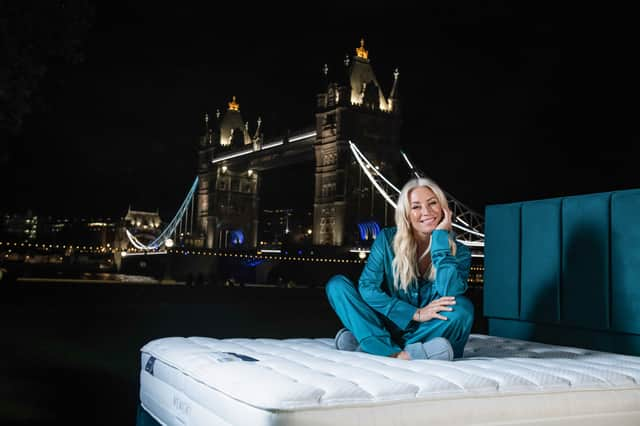Millions of adults are losing sleep because of the temperature, noise levels, intruding light and a snoring partner
This article contains affiliate links. We may earn a small commission on items purchased through this article, but that does not affect our editorial judgement.


A study of 2,000 adults found 60 per cent currently feel robbed of a good night’s sleep, with five per cent getting the recommended eight hours a night or more.
But 38 per cent of all adults blamed mid-night wakings for getting less sleep than they’d like.
Advertisement
Hide AdAdvertisement
Hide AdThe average person wakes up three times a night, with 84 per cent of those who do struggling to drift back off again.
It also emerged 32 per cent find they sleep better when they have dreams, whereas 21 per cent claim it has a negative impact on their quality of sleep.
Sleep expert Dr Kat Lederle, who has partnered with sleep brand Silentnight , which commissioned the research, said: “When we don’t get enough sleep, or have quality sleep, it can have such a huge knock-on effect for the following day.
“This is especially the case when you have a busy life with little me time.”
Advertisement
Hide AdAdvertisement
Hide AdLucy Atherton, from Silentnight added: “Sleep is such a huge part of our lives. Where we sleep makes a huge difference to how we sleep.
"It could be how your room is set up, the things you do in the space before going to bed, or quite simply the mattress you sleep on and how old it is.
“In addition, the shortage of sleep not only impacts productivity at work, performance at school and overall health, but also has a profound effect on our family life.”
Brits employ various tactics to try to doze off
The study also found 28 per cent blame the initial struggle to get to sleep in the first place as a cause of their poor night’s slumber, with the average adult taking 19 minutes to drift off.
Advertisement
Hide AdAdvertisement
Hide AdWhile 84 per cent will try various things to doze off, with counting sheep one of the more traditional methods to get off to sleep.
Other common tactics include reading a book, deep breathing and taking a break from devices before bed.
But some rely on less conventional solutions such as wrapping themselves up in their duvet, as well as tensing and relaxing their muscles.
In a bid to get the best possible night’s kip, four in 10 need a dark room, while 81 per cent think their mattress affects their quality of sleep.
Advertisement
Hide AdAdvertisement
Hide AdMore than a third (35 per cent) like to be snuggled under the duvet to help them sleep, and 26 per cent prefer to have more than one pillow.
The study, conducted via OnePoll, also highlighted the positive impact of feeling well rested, including being in a better mood, feeling more energized and being more productive.
Following the findings, Silentnight has partnered with Denise van Outen to light up London’s skyline with sheep.
It comes after Dr Kat Lederle said 25 is the approximate number of sheep it takes the average person to count per minute when trying to fall asleep.
Advertisement
Hide AdAdvertisement
Hide AdDr Kat Lederle added: “Finding the right mattress for your unique sleep needs is incredibly important to ensure you’re getting the right level of support and getting the best quality of sleep.
“If you’re unsure what your personal sleep needs are, you can use Silentnight's sleepunique tool online; an intelligent algorithm that uses your body measurements and sleeping habits to recommend your perfect mattress.”
Silentnight is searching for the UK’s sleepiest family - to enter go to the brand's website.
20 common methods people use to get themselves to sleep
1. Reading a book
2. Closing your eyes and imaging things
3. Wrapping yourself in your duvet
4. Watching TV
5. Actively trying to clear your mind
6. Deep breathing
7. Taking a break from devices before bed
8. Having a hot drink before bed
9. Lying down for at least half an hour before trying to go to sleep
10. Warming your feet
11. Using a hot water bottle
12. Counting sheep
13. Tensing and relaxing your muscles
14. Counting your breaths
15. Meditating
16. Stretching
17. Listening to white noise sounds
18. Drinking milk before bed
19. Counting backwards
20. Writing things down